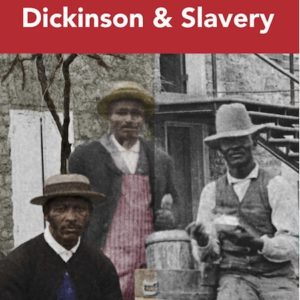 Dickinson College in Carlisle, Pennsylvania, can trace its roots back to 1783. Like many colleges and universities in the United States that were founded before the Civil War, Dickinson College has conducted a review of the educational institution’s historical ties to slavery.
Dickinson College in Carlisle, Pennsylvania, can trace its roots back to 1783. Like many colleges and universities in the United States that were founded before the Civil War, Dickinson College has conducted a review of the educational institution’s historical ties to slavery.
The final 35-page report of the Dickinson & Slavery Initiative was recently released. The report recommends “a deliberative process” for improving the commemoration of the college’s ties to slavery and anti-slavery, including consideration for renaming some buildings on campus that have been honoring former slaveholders.
The report identifies at least seven former slaveholders who are currently being honored on campus with forms of commemoration (such as statues or building names) but separates them into two categories: four slaveholders who eventually emancipated their own slaves and three (John Armstrong, Thomas Cooper, and John Montgomery) who never renounced slaveholding. These last figures were not always publicly commemorated on campus. Armstrong and Cooper residential halls only received their names in the 1990s. Montgomery Hall received its name during the 1950s.
The report also identifies several formerly enslaved people who were influential employees (and sometimes permanent residents) at Dickinson College during the nineteenth century and who deserve consideration for building naming honors.
Today, Dickinson College enrolls about 2,400 undergraduate students. African Americans are 5 percent of the student body, according to the latest data supplied to the U.S. Department of Education.


Share with Gretchel. This is a model for our committee.
Merry Christmas,
Deidre
Dickinson is the alma mater of former Chief Justice Roger B. Taney, author of the infamous Dred Scott decision, in which he held, inter alia, that “blacks “had no rights which the white man was bound to respect; and that the negro might justly and lawfully be reduced to slavery for [the white man’s] benefit,” and that “a black man could be “bought and sold and treated as an ordinary article of merchandise and traffic, whenever profit could be made by it.”
Hopefully, Dickinson has not seen fit to honor this particular alum in ANY manner whatsoever.